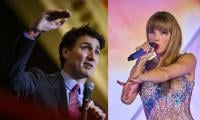BEIRUT: Millions in Lebanon risk food insecurity due to a coronavirus lockdown unless the government provides urgent assistance, Human Rights Watch warned on Wednesday.
Lebanon in mid-March ordered residents to stay at home and all non-essential businesses to close to halt the spread of COVID-19, which has officially infected 575 people and killed 19 nationwide.
Before the pandemic erupted, Lebanon was struggling with its worst economic crisis in decades, with 45 percent of the population facing poverty according to official estimates. Lockdown measures to slow the spread of the virus have made matters worse with "millions of Lebanon’s residents... at risk of going hungry", HRW said in a statement.
Lebanon is home to 4.5 million people, and also hosts around 1.5 million Syrians who have fled the nine-year war next door, most of whom rely on aid to survive. "The lockdown... has compounded the poverty and economic hardship rampant in Lebanon before the virus arrived," said HRW senior researcher Lena Simet. "Many people who had an income have lost it, and if the government does not step in, more than half the population may not be able to afford food and basic necessities."
The economic crisis since last year had already caused many people to lose their jobs or take salary cuts, and stay-at-home measures to counter the virus have now prevented even more from earning a wage.
Media has carried reports of a taxi driver who set his car on fire after security forces fined him for breaking the lockdown rules. And an unemployed Lebanese construction worker unable to afford rent offered to sell his kidney, in an image widely shared online.
HRW Lebanon researcher Aya Majzoub said many families are struggling due to a lack of savings. The government has said it will pay out 400,000 Lebanese pounds (less than $150 at the market rate) to the most vulnerable.
HRW said the government should also consider suspending rent and mortgage payments throughout the lockdown. Majzoub said Syrian refugees were also affected.
"Many of them were seasonal workers -- they worked in agriculture, they worked in the service industry -- and they’re not able to do that anymore," she said. But their ability to cope will depend largely on international aid, as before the pandemic. The World Bank last week said it had re-allocated $40 million from its support to Lebanon’s health sector to fight the virus, including for tests and ventilators.
US President-elect Donald Trump.— AFP/file NEW YORK: The judge in Donald Trump´s criminal hush money case ordered...
Russian President Vladimir Putin conducts an exercise of Russia's strategic nuclear deterrence forces to train actions...
Pantsir-S surface-to-air missile and anti-aircraft artillery systems move through Red Square in Moscow, Russia. —...
The Iranian flag flutters in front of the International Atomic Energy Agency organisation's headquarters in Vienna,...
Indian Prime Minister Narendra Modi listens as President Joe Biden, not pictured, delivers remarks during an event...
A Taliban security personnel stands in Baraki Barak district of Logar Province. — AFP/fileKABUL: At least 10 people...







